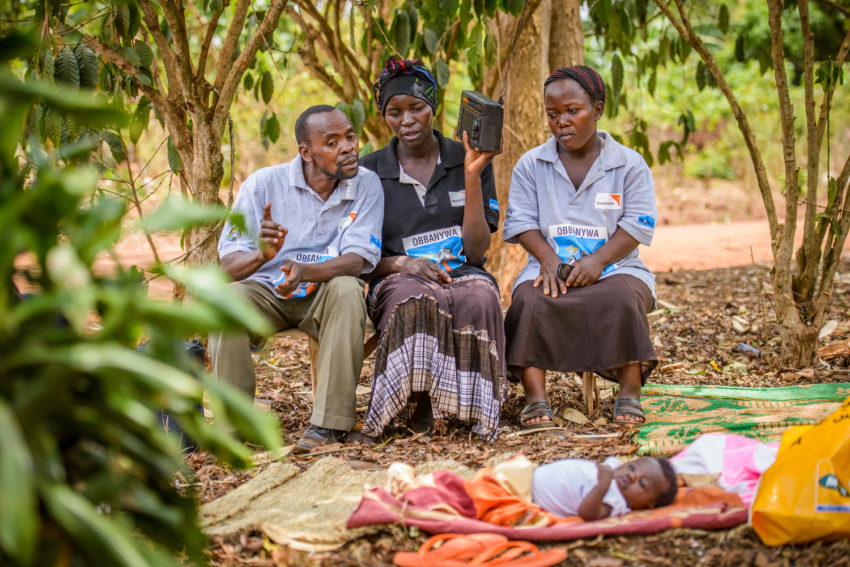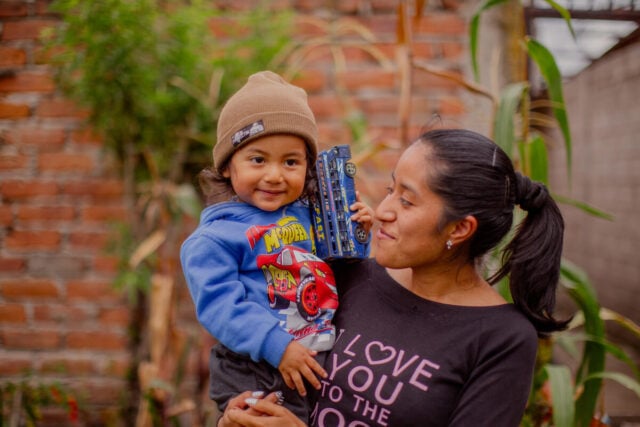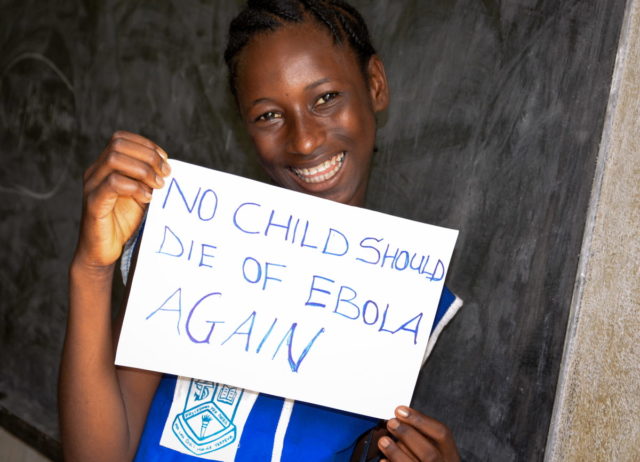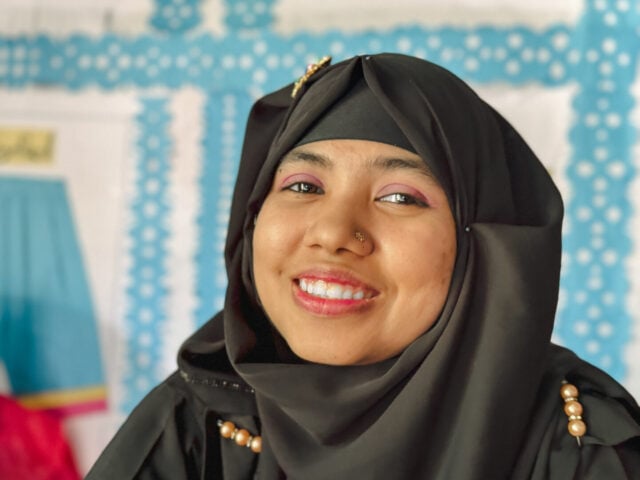Sara Nabukeera’s specialty is saving children’s lives. “I’m always ready,” she says. “When a child falls sick, I am there. If a child has malaria, I know what to do. That makes me proud.”
Sara, 50, is a grandmother, not a doctor. She has been trained as a village health team worker in her community in Kiboga district, Uganda — where only one overworked, underpaid medical doctor serves at the region’s only hospital for a population of 350,000.
Unpaid volunteers like Sara have become the front line of health services for rural Ugandans. The government provides a five-day training, but it isn’t enough to equip the workers who serve as walking mobile health units, helping pregnant women prepare for childbirth and treating common but potentially fatal diseases such as malaria, diarrhea, and pneumonia. These dedicated volunteers often make the difference between life and death.
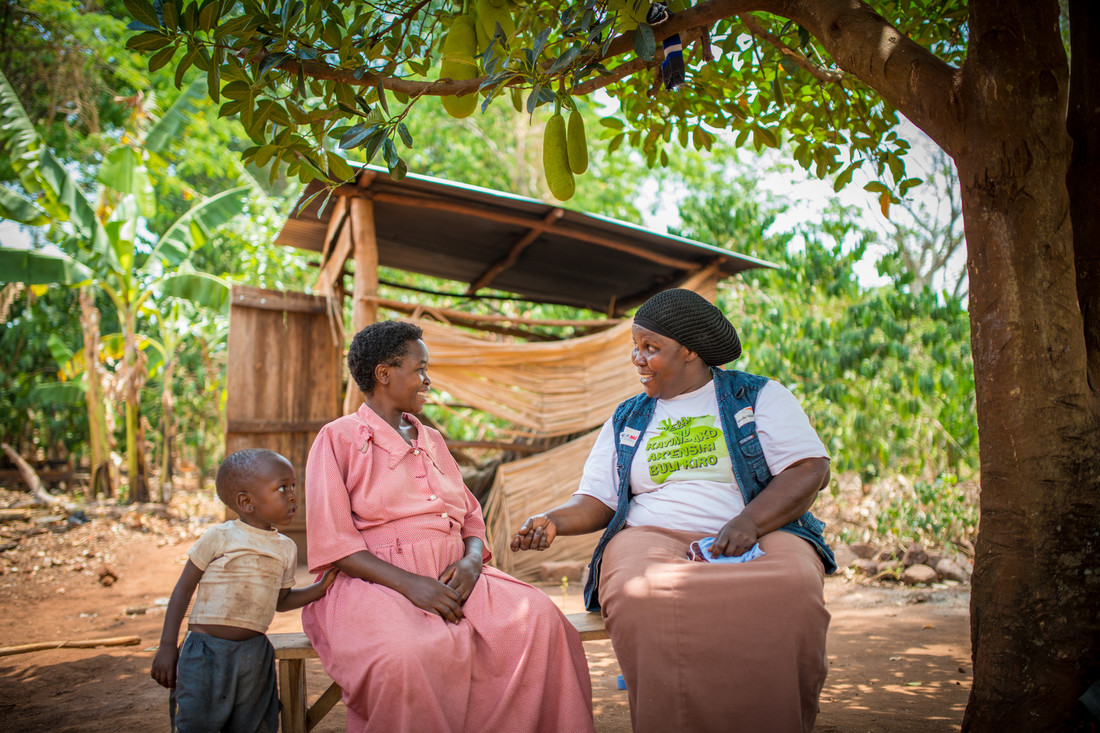
In 2011, World Vision introduced radio distance learning as a way to provide ongoing training for village health workers. Twice a week, volunteers gather around the radio to listen to an entertaining program called obbanywa, absorbing practical advice on how to recognize and treat diseases.
The radio program has trained more than 9,000 volunteer health workers. Sara used her skills to care for expectant mother Janet Namugga, 33, whose first child, delivered under the coffee tree in her yard, was stillborn.
Sara counseled Janet for months on her second pregnancy, dispensing practical advice such as sleeping under a mosquito net to avoid malaria and eating a diet rich in healthy vegetables. Sara also helped Janet prepare for delivery in a hospital.
“Immediately after birth, put the baby on your breast,” Sara says. “The baby will get colostrum. It will make the baby good and bright.”
When a child falls sick, I am there. If a child has malaria, I know what to do. That makes me proud.—Sara Nabukeera, village health worker
Janet is thankful. “This lady has done a great work in my life,” she says.
Another village health worker, 39-year-old Vincent Kakooza, says the most significant thing he learned from the radio program is what to do when baby Remigio came down with a high fever in the middle of the night.
“He was sweating, he was crying,” says Vincent. He knew to quickly test Remigio for malaria. The blood test came back positive.
“I got out the malaria medicine and gave it to him immediately,” Vincent says. “By morning, his temperature went down. He stopped sweating. He stopped crying. I was overjoyed.”
Overjoyed indeed. Vincent had saved his own son. But he treats every patient he sees with no less dedication.
While the health workers work for free, their pay comes in the form of the respect and appreciation they have earned after serving their neighbors and saving lives.
A mother’s thanks
Rahima was 14 and illiterate when she was forced to marry a 50-year-old man in Afghanistan. After four of her children died of pre- and postnatal problems, she feared losing her son, Belal, to malnutrition. World Vision’s health program saved him. Rahima dictated this letter of gratitude.
I want to thank you for contributing to the health of mothers and children in villages of Afghanistan. I am a mother who, one year ago, didn’t have any hope for my young son’s survival. I lost two children during delivery and two other children after delivery. I had lost my hope and thought I would lose Belal, my youngest child, because of malnutrition. I thought those were the last days of his life.
I enrolled my child in the World Vision nutrition program in the clinic. When my Belal came back to the house, he was much better, and mobile teams [came] to my house, advising me on important things like vaccines, deworming, food quality, clean water, and using the latrine. I learned a lot of things.
Today, Belal is alive and healthy because God sent you to help us in order to learn more about health. Some of our neighbors and relatives also have participated in the World Vision programs, and they are also happy like me.
May God bless and protect you in all that you do. Thank you so much for your willingness to serve needy people.
